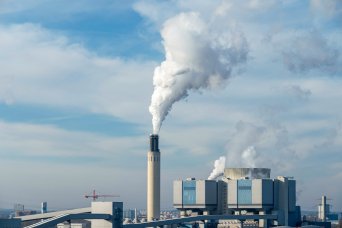- About
- Topics
- Picks
- Audio
- Story
- In-Depth
- Opinion
- News
- Donate
- Signup for our newsletterOur Editors' Best Picks.Send
Read, Debate: Engage.
| topic: | Climate action |
|---|---|
| located: | United Kingdom |
| editor: | Abby Klinkenberg |
Following the disastrous and historically short 44-day premiership of Liz Truss, the bar has essentially fallen to the floor for the UK’s new prime minister Rishi Sunak - especially in terms of climate action. After Truss re-introduced fracking, sought to axe 570 environmental regulations attached to inherited EU legislation, and announced the creation of ‘investment zones’ (essentially a race to the bottom in terms of environmental standards), Sunak could not possibly come up with - let alone advance - a more damaging environmental agenda.
At a moment when over half of Tory party members deny that climate change is linked to human activity, Sunak’s recognition that a net-zero future is worth working towards at all is something to hold on to. He is expected to largely return the UK to the environmental status quo set by Boris Johnson’s government (not that it was particularly visionary). He’s already reinstated the fracking ban that had been lifted by Truss, indicating that he’s on a mission to course-correct. Sunak’s brighter climate moments are all couched in free-market prioritisation of the economy: committing the UK to being the “world’s first net-zero aligned financial centre,” pledging $120 million to the Taskforce on Access to Climate Finance at COP26, and overseeing the creation of the UK infrastructure bank to disperse climate capital domestically. Ultimately, Sunak wants “to show that [the UK] can cut emissions while growing [its] economy.” He is comfortable working towards a green future so long as it does not affect the country’s bottom line.
This commitment to financialising the climate crisis is a predictable tack from a former-investment banker enveloped in privilege. In addition to being the first person of colour to hold the UK’s highest office, Sunak is also one of the richest to ever hold the post. Together with his wife Akshanta Murthy, daughter of N.R. Narayana Murthy, co-founder of Infosys, the Goldman Sachs-alumnus-turned-PM is worth approximately $810 million - nearly twice as much as the newly crowned King Charles III. While it’s nothing particularly new for political leaders to come from upper-class backgrounds, Sunak’s frankly unimaginable wealth takes on a different timbre at a moment when so many in the UK are suffering under a ruthless cost-of-living and energy crisis.
Earlier this year, in May 2022, Sunak’s commitment to Thatcherite austerity was momentarily suspended when he imposed a windfall tax at the behest of the Labour Party in order to recoup profits from oil and gas companies to support British households. However, there was a significant caveat: the measure provided tax breaks to firms that would invest in the extraction of fossil fuels in the North Sea. Sunak has been steadfast in his support for further oil and gas exploration and production in the North Sea, waving off onshore wind and farmland solar in the process (two of the most cost-effective ways to generate electricity in the UK). Such a short-sighted approach is hardly promising.
As a winter of inevitable discontent descends upon the UK in the form of fuel poverty, Britons are looking for ways to ensure that their homes remain warm and that their bills remain payable. Since the energy price cap doubled in October, these simple needs have become increasingly remote. Nor has Sunak exactly been a vigilant crusader in the defence of the common man: as Chancellor of the Exchequer under Boris Johnson, he cut a $1.7 billion program intended to subsidise housing insulation across the country. Sunak has since promised to initiate a new, better program to support the insulation of lower-income houses but, with winter chill already setting in, his new timeline is likely too late to benefit the population in its moment of need - which is, quite honestly, right now.
At the end of the day, Rishi Sunak is still the same man who bragged about diverting funds for ‘deprived urban areas’ towards wealthy Tory-voting towns. Although an improvement over Truss, his premiership is likely to do little for either climate or social justice.
Photo by Etienne Girardet

